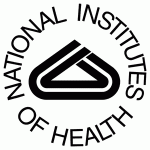 A mutation found in about one in 200 Icelanders older than 85 raised the risk of developing Alzheimer’s disease threefold, researchers said.
A mutation found in about one in 200 Icelanders older than 85 raised the risk of developing Alzheimer’s disease threefold, researchers said.
The mutation, in an immunoregulatory gene known as TREM2, was more common in Alzheimer’s disease patients than in the general 85-and-older population in Iceland with an odds ratio of 2.91 (95% CI 2.09 to 4.09, P=3.42×10-10), reported Kari Stefansson, MD, PhD, of deCode Genetics in Reykjavik, Iceland, and colleagues.
Because of the gene’s function within the central nervous system, the mutation “may lead to an increased predisposition to Alzheimer’s disease through impaired containment of inflammatory processes,” the researchers wrote online in the New England Journal of Medicine.
Such processes have been implicated in Alzheimer’s disease previously, they noted. In fact, the so-called amyloid theory of the disease holds that brain inflammation is the “downstream effect” of the accumulation of beta-amyloid protein plaques, Stefansson and colleagues wrote.
On the other hand, the TREM2 mutation’s rarity, and the fact that many carriers in the study remained free of Alzheimer’s disease into extreme old age, suggested that it is neither necessary nor sufficient to trigger the disease.
In the study, Stefansson and colleagues first analyzed genome sequences from 2,261 Icelanders to identify variants considered likely to produce gain- or loss-of-function mutations in expressed proteins.
They then compared frequencies of such variants in 3,550 individuals with Alzheimer’s disease versus 110,050 individuals from the general Icelandic population. Included in the latter group were 8,888 who had reached the age of 85 without a diagnosis of Alzheimer’s disease and 1,236 who were that old and showed no sign of cognitive impairment.
A mutation in TREM2 causing an amino acid substitution at position 47 was the only one significantly associated with Alzheimer’s disease in the analysis. Compared with the sample drawn from the all-ages general population, the odds ratio was 2.26 95% CI 1.71 to 2.98) for increased frequency of the mutation in Alzheimer’s disease patients.
And, compared with the 1,236 controls older than 85 with no cognitive impairment, the odds ratio in patients was 4.66 (95% CI 2.38 to 9.14).
Nevertheless, the mutation was present in all three control groups at low frequencies, ranging from 0.62% in the general population sample to 0.31% in the cognitively intact older controls.
Older control members carrying the mutation — even those without Alzheimer’s disease — had poorer cognitive performance according to test results obtained periodically in Icelandic nursing home residents.
Mean scores in 3,699 noncarriers trended slowly upward by age, indicating progressively poorer cognitive function, from about 2.2 at age 81 to 2.7 at age 99.
The upward slope was noticeably steeper in 53 mutation carriers, increasing from a mean of about 2.3 at age 81 to 4 at age 97 (P=0.003 for trend).
Stefansson and colleagues also sought to replicate the frequency comparison in Alzheimer’s disease patients versus controls in other cohorts. They were able to test the frequency of the TREM2 mutation in groups of patients and controls assembled in the U.S., Germany, the Netherlands, and Norway — a total of 2,037 patients and 9,727 controls.
The mutation was less common in the control groups in those cohorts, ranging in frequency from 0.12% to 0.19%. But the approximately threefold increase in frequency in Alzheimer’s disease patients was preserved in pooled data from all four groups (OR 2.83, 95% CI 1.45 to 5.40, P=0.002).
On the other hand, among the individual cohorts, the association was significant in only one, from Munich (OR 3.15, 95% CI 1.06 to 10.40, P=0.04).
In an accompanying editorial, two other researchers commented that the study was important for its clear implication of inflammatory processes in at least a subset of Alzheimer’s disease cases.
The findings “may generate new insights into the pathogenesis of late-onset Alzheimer’s disease,” wrote Harald Neumann, MD, of the University of Bonn in Germany, and Mark J. Daly, MD, of Massachusetts General Hospital in Boston.
They also pointed out that the risk of Alzheimer’s disease associated with the TREM2 variant was in the same range as for the much more common APOE epsilon 4 variant.
Severe loss of function in TREM2 from homozygous mutation is already a recognized human disorder known as Nasu-Hakola disease, Neumann and Daly added. In this condition, a number of organ systems are affected, with severe dementia a late-stage symptom. Most patients die by age 50.
Previous research has indicated that heterozygous carriers of the Nasu-Hakola mutation are at increased risk for late-onset Alzheimer’s disease.
The study was supported by the National Institutes of Health. Data from the replication cohorts came from studies funded by government agencies in the countries where they were conducted.
Stefansson and colleagues reported relationships with Pfizer, GlaxoSmithKline, Novartis, Bristol-Myers Squibb, Sanofi, Schwabe, Eli Lilly/Avid, Elan, GE Healthcare, Janssen-Cilag, Merz, Roche, Boehringer Ingelheim, AstraZeneca, Wyeth, Esai, Genentech, EVI, Nordforsk, Ceregene, Medivation, and Merck. Several authors were deCode employees.
Neumann and Daly reported no relevant financial interests.
Primary source: New England Journal of Medicine
Source reference:
Jonsson T, et al “Variant of TREM2 associated with the risk of Alzheimer’s disease” N Engl J Med 2012; DOI: 10.1056/NEJMoa1211103.
Additional source: New England Journal of Medicine
Source reference:
Neumann H, et al “Variant TREM2 as a risk factor for Alzheimer’s disease” N Engl J Med 2012; DOI: 10.1056/NEJMe1213157.